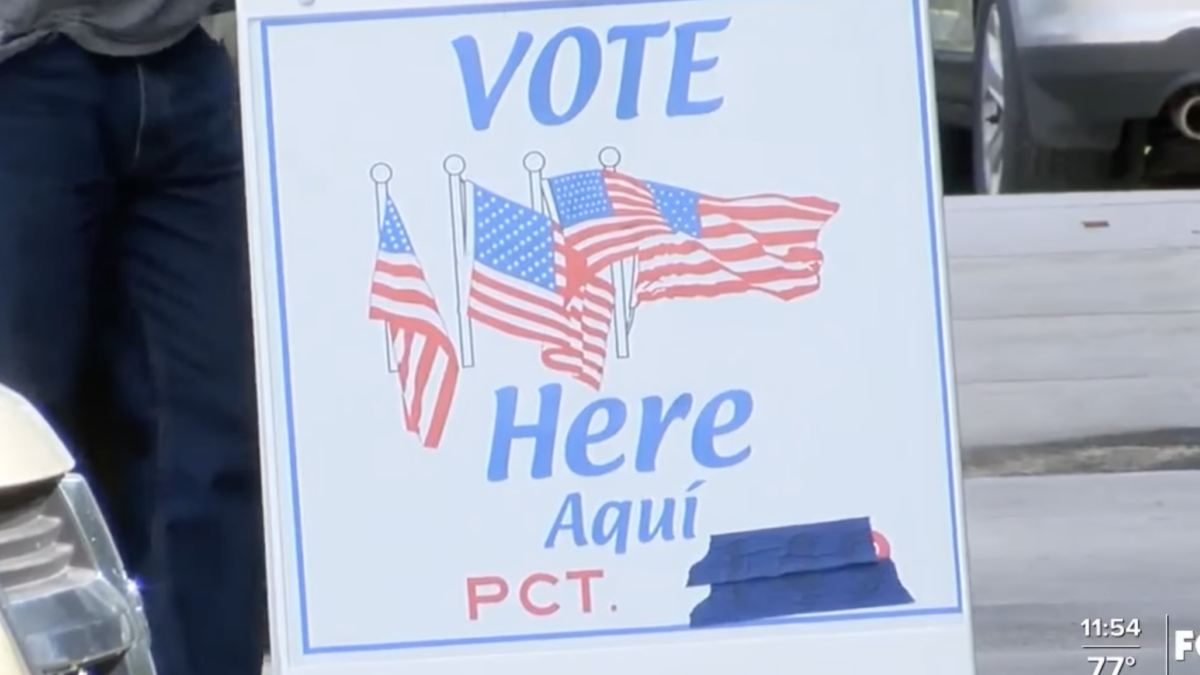Wisconsin mayors used grants from the Mark Zuckerberg-funded Center for Tech and Civic Life (CTCL) to target “voters of color” with information campaigns during the 2020 election, according to documents published by local municipalities. This amounts to a get-out-the-vote operation conducted within government elections offices biased on behalf of Democrats, as non-white voters tend to vote Democrat.
Left-wing organizers established the CTCL, which funneled nearly half a billion dollars from Zuckerberg to public election agencies ahead of the 2020 election. As The Federalist has previously reported, the amount of money the CTCL poured into elections offices in Democrat-voting areas with the intention of juicing Democrat turnout is “truly staggering.”
These latest documents show how CTCL grant money was used tactically and strategically to push absentee ballots on “voters of color,” a key part of the Democrat coalition. Targeting only these voters only instead of all voters equally is a strategic tactic for increasing the Democrat vote share.
Mayors of Green Bay, Kenosha, Madison, Milwaukee, and Racine detailed their approach to the 2020 election in the Wisconsin Safe Voting Plan, which they submitted to CTCL on June 15, 2020. They explained that part of their strategy for conducting “safe, fair, inclusive, secure, and professional” elections was to target “voters of color” with information campaigns.
The mayors planned to spend $1.07 million to “dramatically expand strategic voter education and outreach efforts, particularly to historically disenfranchised residents.”
“We understand that our communities of color do not necessarily trust the voting process,” the document said. “We need to work to earn that trust.”
The city of Milwaukee planned to spend $250,000 in grant money on “voter outreach,” specifically to “historically underrepresented communities such as LatinX and African Americans.”
In their messaging, officials were to “harness the current protests’ emphasis on inequity,” the document said. During the summer of 2020, riots broke out across America in the wake of George Floyd’s death, resulting in more than $2 billion in property damage and at least six deaths.
Milwaukee officials called their approach “edgy but nonpartisan and tasteful.” The city of Madison planned to target “communities of color” with $100,000 worth of content directed at minority media outlets.

“The city would also like to partner with community organizations and run ads on local Spanish-language radio, in the Spanish-language newspapers, on local hip hop radio stations, in African American-focused printed publications and in online publications run by and for our communities of color,” the document said.
Madison also set aside a budget of $75,000 to pay workers from “historically disenfranchised communities” to conduct voter outreach.
The cities of Racine and Kenosha took a much more moderate approach, simply posting election information around their jurisdictions, at times focusing on bilingual messaging. While the city of Green Bay used part of their CTCL grant to reach churches and educational institutions, they also specifically aimed to reach “organizations serving African immigrants, LatinX residents, and African Americans.”
Green Bay also set aside $45,000 to employ bilingual “voter navigators” who would tell residents how to complete their ballots. Voter navigators acted as witnesses to ballot authenticity, instructed residents how to upload a photo ID, and supposedly helped them “comply with certification requirements.”

“Voter navigators can assist voters prior to the elections and then also be trained and utilized as election inspectors,” the document said.
Voter navigators from the National Vote at Home Institute (NVAHI) took part in curing absentee ballots– i.e., “correcting” alleged mistakes in ballots– during the 2020 election in Wisconsin.
Sam Munger, a partner with Uprising Strategies, offered NVAHI’s services to former Green Bay Mayor’s Office Chief of Staff Celestine Jeffreys on July 13, 2020, just weeks after the mayors submitted their spending plans to CTCL.
“NVAHI works closely with the Center for Tech and Civic Life and is a designated technical assistance provider on the election administration grant recently made to Green Bay and four other cities in Wisconsin,” Munger said to Jeffreys in the email. “NVAHI would be happy to present to the ad hoc committee on elections and give an overview of best practices for absentee voting and to discuss additional free technical support.”
Uprising Strategies offers “deep political and policy expertise” to “build effective institutions to influence state and local policy making,” according to the group’s website. Munger has worked for multiple leftist think tanks in the past.
Former Green Bay City Clerk Kris Teske expressed discomfort with employing voter navigators during the 2020 election.
“The city could get accused of favoring one party over another,” Teske said to Jeffreys in an email. “Who’s going to train these people? It takes a long time to know all the laws of what is allowed and what isn’t.”

In the past, Teske also raised concerns about special registration deputies, who played similar roles to voter navigators.
“I had a bad experience when Special Registration Deputies were allowed. One of them would only register a certain party,” Teske said in the email. She warned, “It is very important this doesn’t happen.”

Teske eventually grew tired of third-party election intervention that clearly biased election results in favor of one political faction.
“If I am ever asked to do anything against the law the answer will be NO! If you want more clarification on this please give me a call,” Teske wrote in an email to Green Bay Finance Director Diane Ellenbecker, according to the Wisconsin Spotlight.
Teske resigned her position in December 2020, and Jeffreys now holds Teske’s old position as Green Bay City Clerk.







